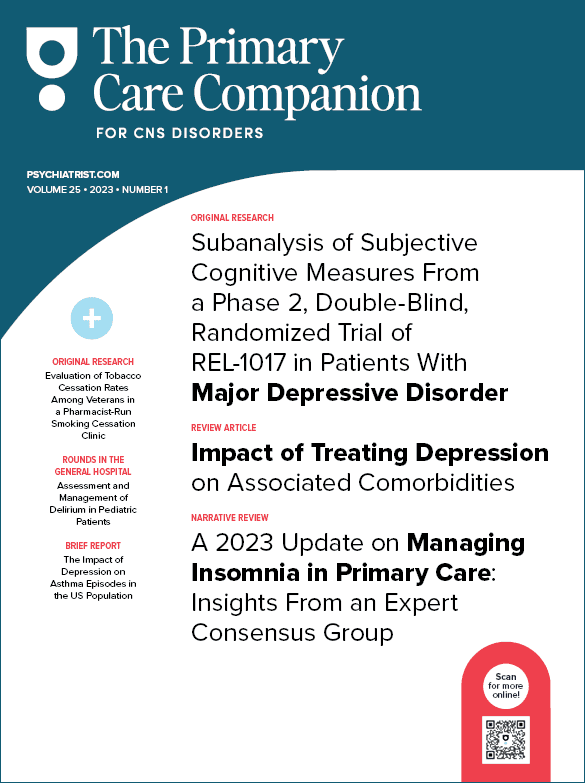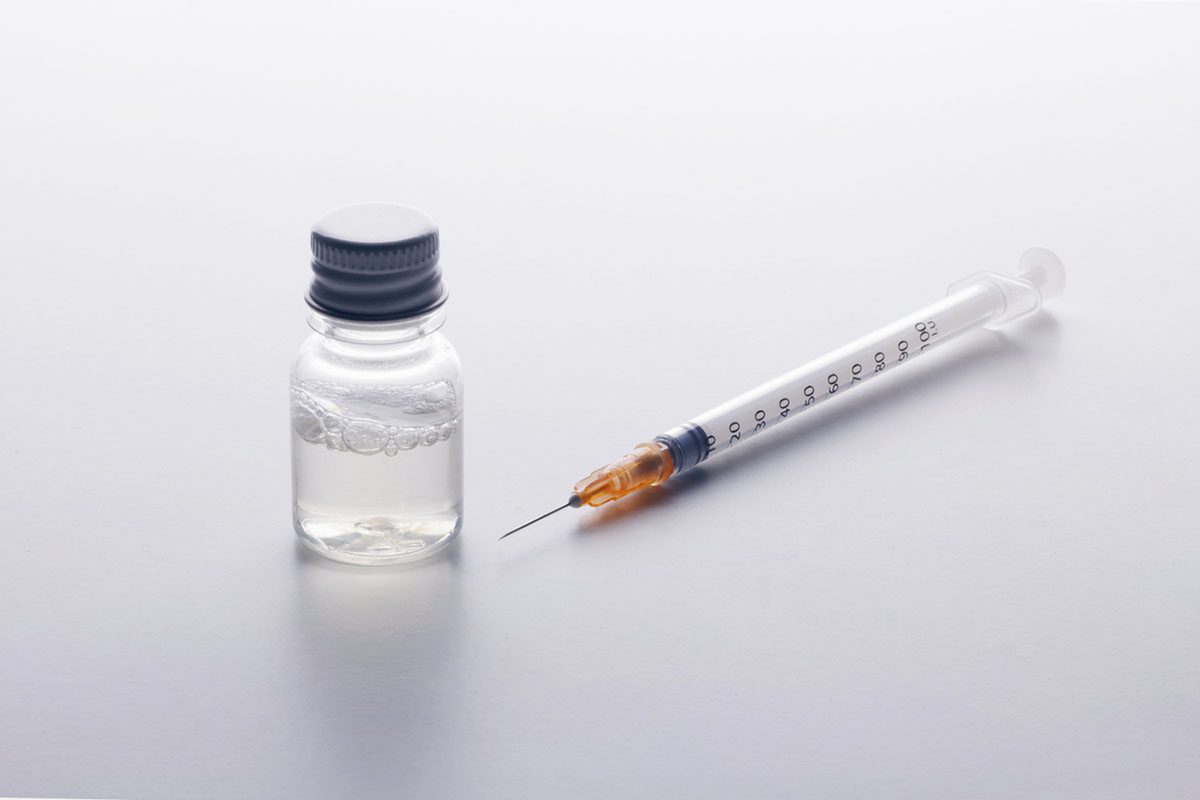Because this piece does not have an abstract, we have provided for your benefit the first 3 sentences of the full text.
Although suicidality is the primary reason cited for intentional insulin overdose, there are few reports of insulin use for euphoric experiences. We present a case of addiction-like behavior in the setting of insulin misuse.
Case report. Mr A is a 42-year-old black man with a history of multiple suicide attempts by insulin overdose (this was the third time within 12 months).
Intentional Insulin Overdose for Euphoric Experience
To the Editor: Although suicidality is the primary reason cited for intentional insulin overdose, there are few reports of insulin use for euphoric experiences. We present a case of addiction-like behavior in the setting of insulin misuse.
Case report. Mr A is a 42-year-old black man with a history of multiple suicide attempts by insulin overdose (this was the third time within 12 months). On the day of admission to the hospital, the patient was at the medical day program and was left unattended for a moment. He stated that he "saw an opportunity and took it" and denied any precipitating triggers. His initial suicidal risk assessment was high. However, on further evaluation he admitted to abusing insulin for euphoric experience rather than to commit suicide. After taking the insulin, he felt a calm feeling throughout his body prior to becoming unconscious. According to the patient, this sensation was comparable to the feeling he got while taking opioids prescribed postoperatively in the past. He had mild depressive symptoms and no psychotic symptoms. The patient denied any other substance abuse, obsessive thoughts, or compulsive behavior. He had no family history of substance use. He was diagnosed with unspecified depressive disorder (DSM-5 criteria). He was treated with a selective serotonin reuptake inhibitor and cognitive-behavioral therapy. The patient was discharged back to the medical day program. There were no further hospitalizations due to insulin overdose within a year after discharge.
Several mechanisms may account for insulin misuse behavior. Hypoglycemia, like asphyxia, can cause a euphoric or dissociated state.1 Hypoglycemia activates the ventral striatum, which plays a role in reward and reinforcement learning.2 In addition, repetitive hypoglycemia is associated with reduction in the activation of the cingular cortex in rats.3 Thus, repetitive hypoglycemia could lead to desensitization, contributing to the development of insulin abuse.
Insulin plays a direct role in the reward system through its effect on dopamine.4 It is reported that dopamine affects the motivation aspect of the reward system rather than the pleasure aspect. High-dose dopamine agonists increase the desire to engage in "rewarding" acts. An increase in dopamine does not seem to increase how much one likes a certain drug or activity but rather increases the desire for it, thereby motivating the individual to seek it out again.5 Thus, it is postulated that insulin can activate the dopaminergic system by "teaching" the patient to experience his/her action as an incentive and motivating him/her to repeat the behavior in the same manner seen in substance abuse.
Due to the lethal nature of insulin overdose, it is easy to connect insulin overdose with suicidality. However, practitioners should be aware of the possibility of insulin as a potential substance of abuse when treating patients taking insulin, particularly those with a history of frequent hypoglycemic events.
References
1. Law JR, YeÅŸiltepe-Mutlu G, Helms S, et al. Adolescents with type 1 diabetes mellitus experience psychosensorial symptoms during hypoglycaemia. Diabet Med. 2014;31(10):1245-1251. PubMed CrossRef
2. Teh MM, Dunn JT, Choudhary P, et al. Evolution and resolution of human brain perfusion responses to the stress of induced hypoglycemia. Neuroimage. 2010;53(2):584-592. PubMed CrossRef
3. Hurst P, Garfield AS, Marrow C, et al. Recurrent hypoglycemia is associated with loss of activation in rat brain cingulate cortex. Endocrinology. 2012;153(4):1908-1914. PubMed CrossRef
4. Daws LC, Avison MJ, Robertson SD, et al. Insulin signaling and addiction. Neuropharmacology. 2011;61(7):1123-1128. PubMed CrossRef
5. Berridge KC, Kringelbach ML. Pleasure systems in the brain. Neuron. 2015;86(3):646-664. PubMed CrossRef
aDepartment of Psychiatry, New Jersey Medical School, Rutgers University, Newark, New Jersey
Potential conflicts of interest: None.
Funding/support: None.
Patient consent: Permission was received from the patient to publish this case, and the information has been de-identified to protect anonymity.
Published online: December 14, 2017.
Prim Care Companion CNS Disord 2017;19(6):17l02101
https://doi.org/10.4088/PCC.17l02101
© Copyright 2017 Physicians Postgraduate Press, Inc.
Enjoy free PDF downloads as part of your membership!
Save
Cite
Advertisement
GAM ID: sidebar-top




